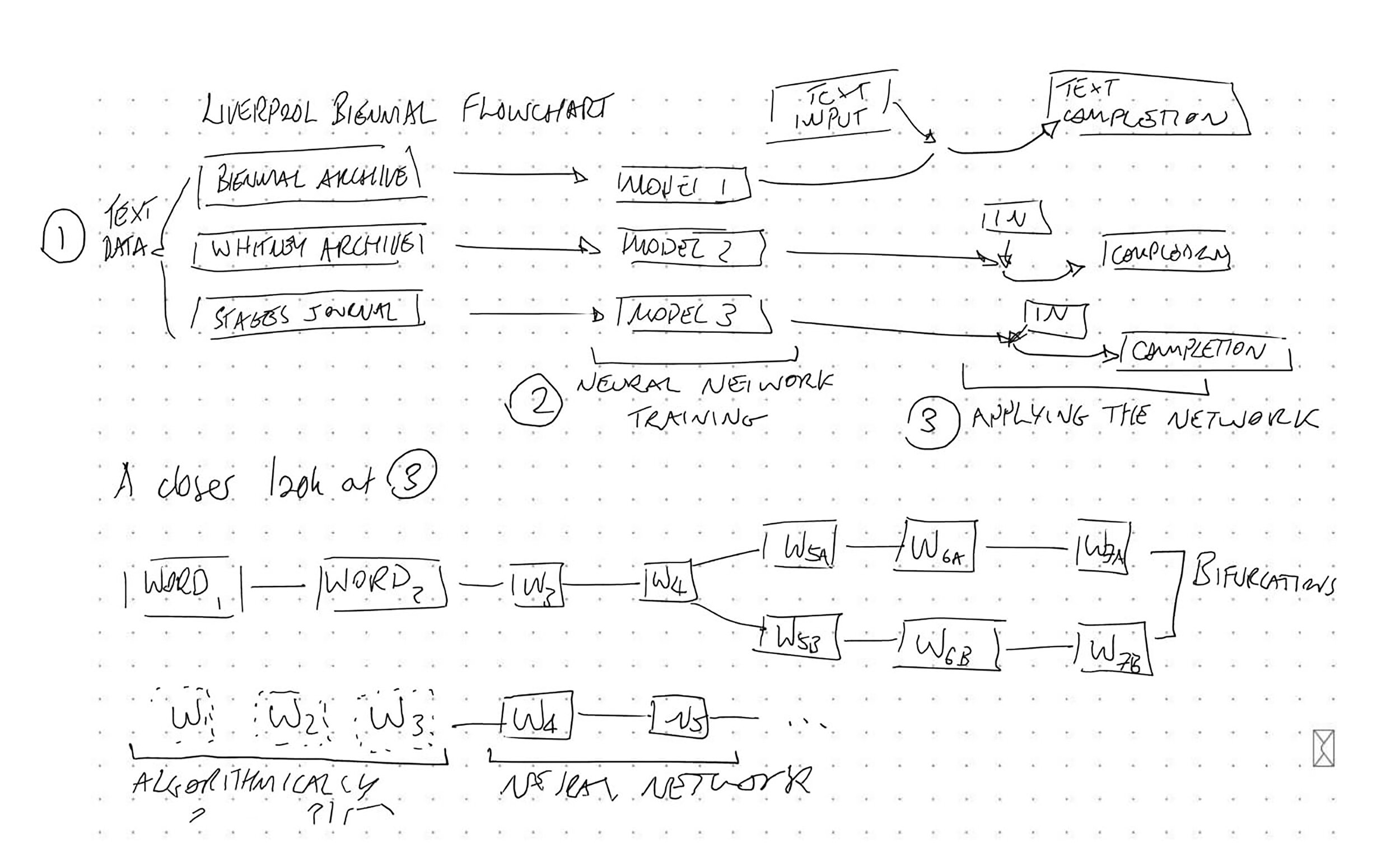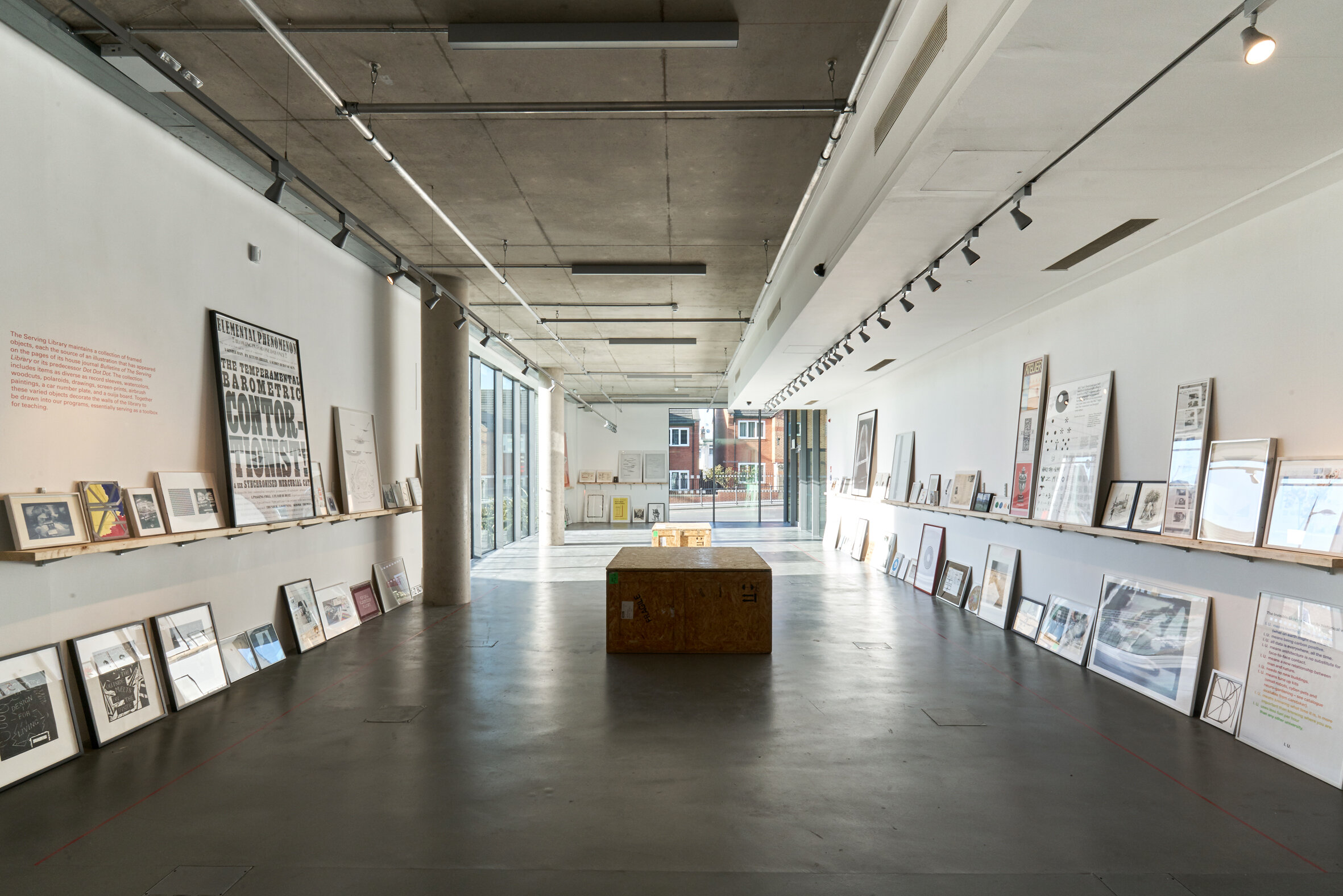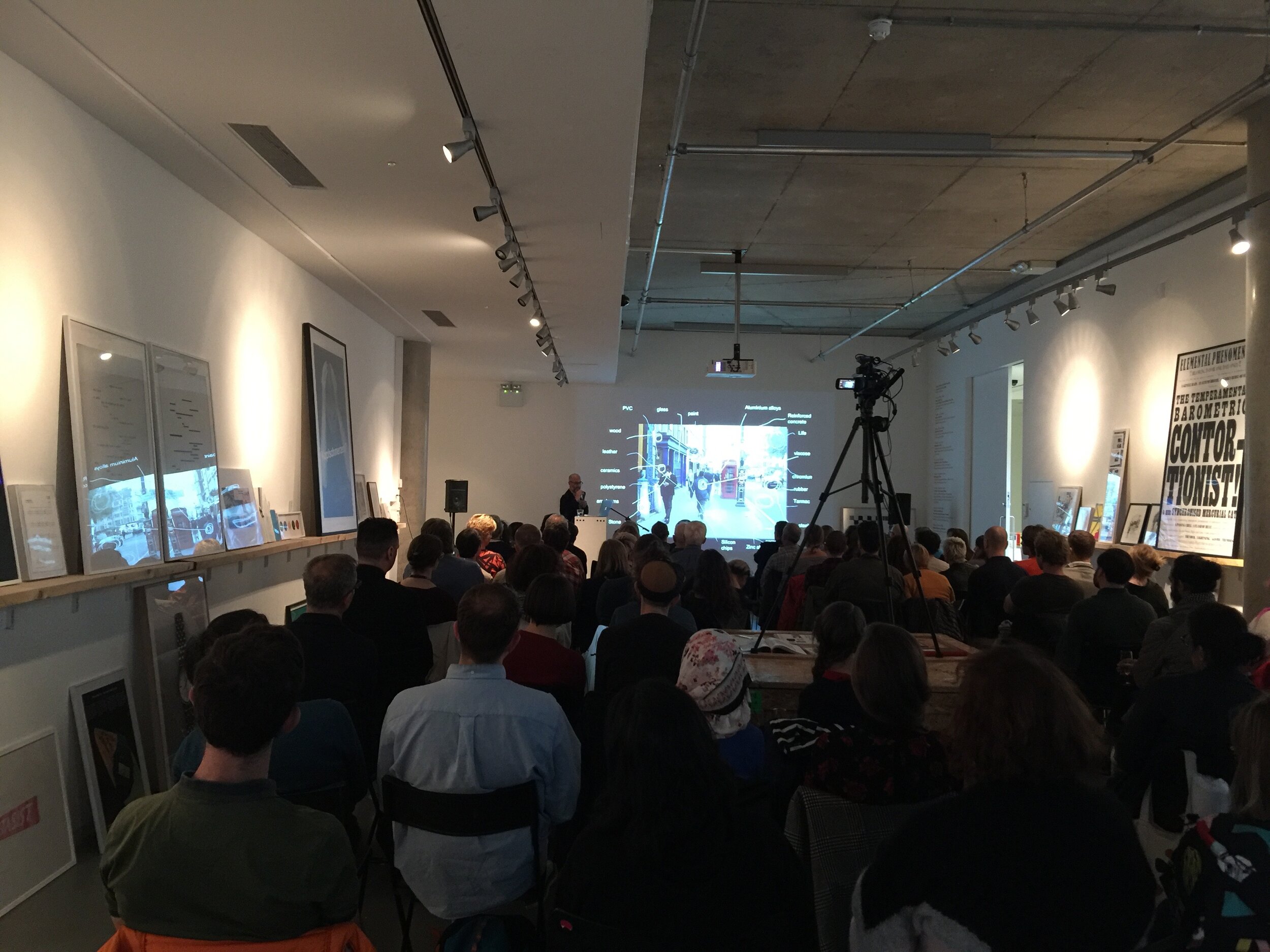SESSION 7:
ORBITING The LIVERPOOL BIENNIAL
Note: breaks are not reflected in the schedule which follows.
LIVERPOOL BIENNIAL 2021: ”The Stomach and the Port”
curated by Manuela Moscoso
Virtual Biennial Tour
FRIDAY, 28 MAY 2021
TIME ZONE CONVERTER
Session Evaluation
16:00 - 17:00 UTC
The stomach and the port
A TALK BY Manuela Moscoso (Public)
17:00 - 17:45 UTC
The Next Biennial Should be Curated by a Machine (Public)
Curatorial practice at the intersection of academic research and public display
TALK BY JOASIA KRYSA (30 MIn) + Q&A (+15 min)
18:00 - 20:00 UTC
INDEPENDENT RESEARCH SESSION
LEAD BY TARA TURNBULL
SATURDAY, 29 MAY 2021
TIME ZONE CONVERTER
Session Evaluation
14:00-20:00 UTC
Institution as Praxis - New Curatorial Directions for Collaborative Research
a session with Carolina Rito and Bill Balaskas
16:00 - 17:00 UTC
TRANSART PRAXIS CLINIC
REGISTER for a session HERE
SUNDAY, 30 MAY 2021
TIME ZONE CONVERTER
Session Evaluation
15:00 - 20:00 UTC
Curating practices
A WORKSHOP WITH MANUELA MOSCOSO
SESSION DESCRIPTIONS
The Stomach and The Port
A Talk With Liverpool Biennial Curator
Manuela Moscoso
The question at the heart of the 2021 the Liverpool Biennial is what is a body, what it does, and by extension, what is a human and what humans have to potential to be. The focus on the body challenges our understanding of ourselves as rational, defined, finite beings, suggesting instead non-Western viewpoints to recognize the entanglement of bodies, objects, the environment and history. The title, The Stomach and the Port” reflects on systems of exchange, how borders are not only geographic, but also political and subjective constructs, the outcome of a historical process of division begun in the modern, colonial world. The biennial resists this order, reminding us that our lives are intertwined with one another.
Moscoso will be presenting the work behind assembling the Liverpool Biennial 2021 which will unfold her perspective on curating, exhibition- making, and producing in motion with artistic practices.
Manuela Moscoso is a curator, researcher and critical producer devising and delivering exhibitions, public programs and publications, independently or for organizations in Europe and Latin America, for example as Senior Curator at Museo Tamayo (Mexico City) or co-director of CAPACETE (Rio de Janeiro); and currently as curator at the 2021 Liverpool Biennial (UK). She has published number of books and essays, including,Thinking about it, Daniel Steegmann Mangrané Animal Que No Existe or with Ariel SchlesingerHands Makes Mistakes. Collaboration is fundamental to her professional practice, as Moscoso believes production only happens through a relation with others. Recognizing herself as a curator of practices rather than objects, she continuously looks for different approaches to research, create, think, produce and disseminate work and ideas. Moscoso sees a deep connection between art and education practices, and she is strongly committed diversifying the art sector by ensuring wider representation on every aspect of its practices and advocating for non-Western systems of thought and intellectualities.
__ __ __
The Next Biennial Should be Curated by a Machine Curatorial practice at the intersection of academic research and public display
A TALK + Q&A WITH
JOASIA KRYSA
Friday, 28 MAY 2021
17:00 - 17:45 UTC
Joasia Krysa has curated at the intersection of art and technology, amongst others, as part of the curatorial team for Documenta 13, Artistic Director of Kunsthal Aarhus, Denmark, and co-curator of Liverpool Biennial 2016. Her first curatorial software experiment was launched at Tate Modern in 2005, and published in Curating Immateriality (2006). In her talk, Joasia will discuss her curatorial work and interests that underpin it: her interest in technology, and curatorial practice as research and form of knowledge. She discusses her work leading the Exhibition Research Lab, an experimental research environment and a public exhibitions venue at Liverpool School of Art and Design. She will also introduce her recent projects developed in the context of Liverpool Biennial, including ‘The Next Biennial Should be Curated by a Machine’ (co-commission with the Whitney Museum of American Art). She is Professor of Exhibition Research and Head of Art and Design at Liverpool John Moores University’s School of Art and Design, with an adjunct position at Liverpool Biennial. She currently serves as curatorial advisor for Sapporo International Art Triennale (SIAF) 2020/21 in Japan, and Helsinki Biennial 2021.
Joasia Krysa’s profile
— — —
Institution as Praxis - New Curatorial Directions for Collaborative Research
a session with
Carolina Rito and Bill Balaskas
Saturday, 29 MAY 2021
14:00 - 20:00 UTC
How are curatorial and artistic practices advancing new research methods? Institution as Praxis—New Curatorial Directions for Collaborative Research explores new curatorial and artistic practices that contribute to the expansion of institutional, practice-based, and collaborative research methods. This publication offers an overview of how creative practices are modifying the ways we think about both knowledge production and research in the cultural sector and in academia. This exploration enquires the invention of manifold research methodologies and contributes to think of strategies to de-universalize and de-neutralize the rigid epistemic schemata of inherited disciplines. Designed as a platform of aesthetic and intellectual exchange, the speculative interface of cultural practices has radically changed the way we consider how research qualities in curatorial and artistic practices have developed. Institution as Praxis aims to identify and advocate for a multiplicity of practices taking place across the cultural sector that do not only engage with the quest to deliver cultural activities (e.g. exhibitions, events), but generate new modes of knowledge production and research in the field of visual culture, art, and the curatorial. > > This publication is part of a broader research strand initiated by Carolina Rito at Nottingham Contemporary. Institution as Praxis examines new modes of knowledge production and research in the field of visual culture, art, and the curatorial.
Professor Carolina Rito is a researcher and curator whose work is situated at the intersection between knowledge production, the curatorial, and contested historical narratives. She is Professor of Creative Practice Research, Research Centre for Arts, Memory, and Communities, Coventry University; an Executive Board Member of the Midlands Higher Education & Culture Forum; and a Research Fellow at the Institute of Contemporary History (IHC), Universidade Nova de Lisboa. Rito is the Executive Editor of The Contemporary Journal and has published in international journals such as King’s Review, Mousse Magazine, and Wrong Wrong. From 2017 to 2019, she was Head of Public Programmes and Research at Nottingham Contemporary, leading the partnership with Nottingham Trent University and University of Nottingham. She holds a PhD in Curatorial/Knowledge from Goldsmiths, University of London, where she also taught from 2014 to 2016. She lectures internationally—in Europe, South America, and the Middle East—on her research and curatorial studies.
<https://pureportal.coventry.ac.uk/en/persons/carolina-rito> Professor of Creative Practice Research Chair of Critical Practices <https://www.coventry.ac.uk/research/areas-of-research/centre-for-arts-memory-and-communities/critical-practices/> Centre for Arts, Memory and Communities <https://www.coventry.ac.uk/research/areas-of-research/centre-for-arts-memory-and-communities/> Coventry University
Bill Balaskas is an artist, theorist and educator, whose research is located at the intersection of contemporary politics, digital media, and visual culture. He is an Associate Professor and Director of Research, Business and Innovation at the School of Art and Architecture of Kingston University, London. His works have been widely exhibited internationally, in galleries, museums, festivals and public spaces. Recent exhibitions include: MACBA, Barcelona; BOZAR, Brussels; National Museum of Contemporary Art, Athens (EMST); CA2M, Madrid; Transmediale, Berlin; Le CENTQUATRE, Paris; John Hansard Gallery, Southampton; ARTIUM, Vitoria-Gasteiz; Stavros Niarchos Foundation Cultural Center, Athens; TENT, Rotterdam; Elizabeth Foundation for the Arts, New York; Thessaloniki Biennale; Les Abattoirs, Toulouse; and the British Film Institute, London. Recent lecture-performances include: Tate Liverpool; University of Oxford; Sharjah Biennial; Goldsmiths University, London; Germanisches Nationalmuseum, Nuremberg; Central Saint Martins, London; Warburg Haus, Hamburg; De Bijloke Muziekcentrum, Ghent; and the Victoria & Albert Museum, London. Balaskas has received awards and grants from the European Investment Bank Institute; Comité International d’Histoire de l’Art; European Cultural Foundation; Open Society Institute; National Sculpture Factory; Cork Opera House; and the Association for Art History, amongst others. In parallel with his artistic practice, he has been an editor for the Leonardo Electronic Almanac (The MIT Press), while his writings have also appeared in numerous books and in publications such as the Journal of Visual Culture, Third Text and Revista Arta. Originally trained as an economist, he holds a PhD in Critical Writing in Art & Design and an MA in Communication Art & Design from the Royal College of Art.
https://www.billbalaskas.com/
https://www.kingston.ac.uk/staff/profile/dr-bill-balaskas-904/
Syllabus
— — —
CURATING PRACTICES
A WORKSHOP WITH MANUELA MOSCOSO
I see collaboration as fundamental to curatorial practice. The way that I define curating, is a continuous study of the processes of art making and their effects in the world. Understanding the social and affect systems, as well, as studying cultural and human conditions are key to develop a curatorial practice that takes into account that processes are a creation happening in relationship to others. We will see in this course, they way in which, curating can be a form of gathering practices rather than objects, by identifying and understanding how people research, create, think, produce, and disseminate work and ideas in order to construct visible and temporal contact zones, in the expanded form of exhibitions.
Specifically, we will focus on my work on the Liverpool Biennial 2021 to study together into ways to decolonize curatorial practices. The purpose of this workshop is not only to name but to put into practice other ways of thinking.
As an exercise I want practitioners who enroll to bring a curatorial exercise of bringing three examples together. Think on the conceptual ground this practices are framed and think on the way those practices are not at service of the concept but as an expansion of what is being framed.





